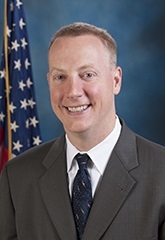
The U.S. healthcare system has made great strides in its transition from volume to value, but a number of challenges remain for the Centers for Medicare & Medicaid Services and other groups pushing for innovation.
Patrick Conway, M.D., CEO of Blue Cross and Blue Shield of North Carolina and former acting principal deputy administrator and chief medical officer for CMS, said in an interview with David Cutler, Ph.D., an economics professor at Harvard, for NEJM Catalyst that some of what CMS tried in his time there stuck and some didn't.
Some alternative payment models, for example, have shown success in reducing cost and lowering quality, Conway said. Bundled payments in particular have shown 10% savings nationally, and are a promising model for alignment and cost reduction, he said. Conway noted, though, that it's easier to align stakeholders, measures and incentives for a specific condition or procedure instead of more broadly across hospitals or health systems.
RELATED: HHS makes move to put end to mandatory bundled payment models
Conway said some early attempts at alternative payment models didn't pan out, and he said the Center for Medicare and Medicaid Innovation couldn't keep pace with change early on, so it was rolling out new payment models too slowly.
My loose attempt at being a journalist: an interview with Patrick Conway on his lessons from CMS. @nejmcatalyst https://t.co/IMRkes3cXq
— David Cutler (@Cutler_econ) October 31, 2017
In addition to bundled payments, accountable care organizations have reduced Medicare spending by millions, according to recent data from CMS.
Eight ACOs that stuck with the Pioneer model through its last year saw gross savings of $68 million, and 11 of 18 Next Generation ACOs saved Medicare more than $71 million. They earned $58 million in shared savings.
RELATED: Medicare Shared Savings Program ACOs saved $652M last year
Overall, Pioneer ACOs, Next Generation ACOs, the Medicare Shared Savings Program and Comprehensive ESRD Care (CEC) reduced gross Medicare spending by $836 million in 2016. Experts say the results of these programs show that value-based care is attainable, but that payment models also need to continue evolve.
“These results demonstrate that value-based care and payment can successfully lead to better care and improved health and outcomes at a lower cost—when the conditions are right,” John Damore, vice president of population health management for Premier, said.